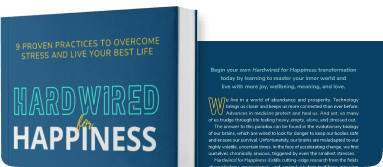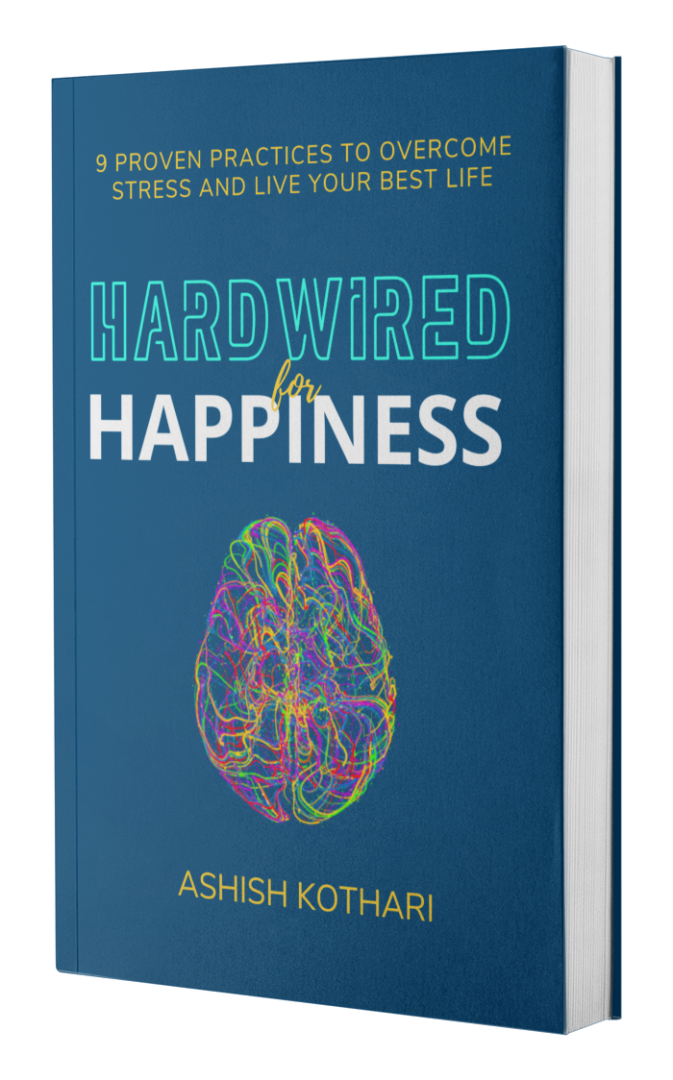Healthy Selfishness: Form, Trust & Honor Personal Commitments

How many wakeful minutes do you set aside for yourself?
We have 24 hours or 1,440 minutes in a day. Laying out our daily commitments, we think about others: CEO & company, family & friends. However, we have equally (maybe a greater), responsibility to commitments we make to ourselves. It gives us agency – the freedom and space to cultivate self-love and self-belief essential to overcome hurdles that come our way. Once we begin compromising on commitments we make to ourself, we find ourselves heading into a space of self doubt and torment. If left to continue, that space only grows and limits us from both loving and trusting in our best self.
Do you feel this?
Yet, we allow the feeling to persist.
The journey towards nurturing personal growth through our commitments starts with the first step of self-love. Recognizing the importance of self-love, care and belief are essential aspects in achieving a happier state of mind. Imagine living a life where you prioritize your mental, physical and emotional well-being. Such practice not only fosters personal growth, but also positively impacts professional relationships, as it allows you to be at your best even in the most challenging situations. How does one go about honoring commitment to self-love and belief?
This is achievable by cultivating Healthy Selfishness, a topic that we discuss in detail with Blake Bauer, author of “You Were Not Born to Suffer.” During the Flourishing Edge Podcast, Blake shared with us his journey of transformation, where he transitioned from a time of personal turmoil to an awakening of self-discovery and healing. We’ll delve into 3 areas and discuss how Blake harnessed these learnings, becoming an expert in nurturing the self, and how we can achieve the same.
- Cultivate Healthy Selfishness
- Value Yourself 100%
- Unlock Fulfilment with Boundaries
“We came here to enjoy being alive, to figure out how to do that in a healthy way, to learn about love, and to learn to love ourselves in a healthy way on every level.” — Blake Bauer
Cultivate Healthy Selfishness
Healthy selfishness is a concept that touches upon the necessity of prioritizing own well-being and mental health. It involves treating oneself with kindness and understanding, much in the way we often strive to treat others. This doesn’t mean disregarding the feelings or needs of those around us, rather ensuring that we consider our own emotional and physical requirements. It is important to understand how closely our well-being is connected to our human interactions and overall outlook on life. Day to day, it’s easy to overlook our own needs, constantly pushing them aside to accommodate other tasks and people. This may seem admirable in the short term, but it fails to recognize that sustaining our well-being and relationships with others in the long run requires us to first have a healthy relationship with ourselves.
Blake Bauer clarifies that cultivating healthy selfishness involves creating a balance where a person can take care of their own needs while also being mindful of others. He stresses the importance of self-love and self-care, explaining these are foundations for maintaining this balance. When we take care of our mind, body, and emotional health, we position ourselves not only to be healthier but also to better support the people around us. We can’t pour from an empty cup. If we are emotionally and physically drained, we’re inherently unable to help others effectively. Being selfish in terms of prioritizing our well-being isn’t a negative action; instead, it’s a necessary one for us to contribute positively to our environment and the lives of others.

As you look at your day or week, form a commitment to yourself by identifying at least one thing you would like to be optimal – exercise, meditation, socialising, playing, reading, or even writing. We are not short of options. Studies show that individuals who established commitments for their well-being experienced a greater adoption of positive habits and routines. They reported a significant decrease in self-destructive behaviors, such as excessive stress, procrastination, and neglecting self-care. Finally, the study revealed that making explicit commitments to oneself strengthens self-discipline and promotes a sense of personal accountability. Participants who actively engaged in setting commitments were more likely to follow through on their intentions.
By validating and committing to our needs and emotions, we are more likely to experience better relationships and increased productivity. Allowing ourselves to take time off when needed and setting boundaries to avoid overextending ourselves ensures that we function at our optimal level. Establish this for yourself before the neglect results in burnout or feelings of dissatisfaction or unhappiness.
Value yourself 100%
Every day is filled with choices that ultimately shape our day and our lives. Learning to navigate these choices through a lens of self-care is a journey that requires deliberate and consistent effort. It begins with both acknowledging and accepting yourself just as you are and realizing that you are worthy of love and care just like anyone else. Establishing this baseline of self-acceptance paves the path for a deeper, more transformative form of self-love. Blake Bauer suggests a simple but profound method of self-inquiry by constantly asking “If I were to value myself 100% in this situation, what would I say and what would I do?”
This question encourages introspection and allows for the alignment of actions with self-respect. This routine starts to allow you to delve within thought and emotional patterns, recognizing and neutralizing the negative self-talk that feeds self-doubt. Instead of permitting these doubts to overpower and govern you, you can view them dispassionately, understanding their origins and their impact on your mental and emotional well-being. One can identify limitations, fears, and self-deprecating thoughts that might be unconsciously tolerating or encouraging. This introspection not only improves individual well-being but also extends to relationships with others, the way we work, and how we perceive the world.

Valuing oneself 100% in every situation leads to a fulfilling life because it determines the quality of the choices we make in every aspect of life – be it career, relationships, or personal well-being. It all begins with the understanding that you truly matter and that you deserve the best in every circumstance. Once you acknowledge this, your thought process and perspective start to align with this truth, resulting in decisions that further reflect your value. This heightened sense of self-regard disinclines you to settle for less than you deserve, propelling you to pursue higher goals and standards that mirror your self-worth. This practice of valuing oneself paves the way for the cultivation of self-acceptance that is not dependent on external validation or the achievement of certain goals. Ultimately, the consistent practice of such self-validation reinforces your inherent value and paves the way toward a fulfilling and gratifying life. Therefore, the practice of valuing oneself 100% isn’t just beneficial, it’s crucial for individuals aspiring for a rewarding and meaningful life.
Understanding and implementing this paves the way for us to rebuild trust in the commitments we make to ourselves and cultivate self-confidence. According to Blake, many people grapple with self-doubt not because they are inadequate, but because they have neglected self-care daily. By integrating habits of self-reflection, we learn to foster a healthier relationship with our thoughts, emotions, and physical self. Self-doubt is progressively replaced by trust and confidence in our inherent worth and capabilities. In turn, this trust empowers us to create positive experiences. By establishing healthy habits and treating oneself positively on a consistent basis, we alleviate self-doubt and rebuild trust with oneself. This profound shift forms a solid foundation for growth as decisions are made from a place of consciousness and confidence.
Boundaries Unlock Fulfilment
Setting boundaries plays a significant role in one’s journey toward happiness and peace. This may feel uneasy or uncomfortable, yet boundaries provide a clear definition of what’s acceptable and what’s not in our interactions with others, setting a structure for relationships that honors our values and needs. It’s an expression of love and respect for oneself, a definitive step in asserting personal space and safeguarding one’s mental and emotional health. This promotes a healthier autonomy and prevents draining encounters, enabling us to maintain our emotional balance and focus on nurturing aspects of life that bring happiness. From Blake Bauer’s perspective, he emphasizes that effective boundaries result from healthy selfishness, a necessary measure to ensure that we’re not perpetually depleting ourselves in the pursuit of pleasing others. By defining our limits, we ensure that we are replenishing ourselves adequately for sustained giving. This doesn’t mean shutting out others, but rather creating a space for mutual respect, understanding, and healthier interactions.
Understanding why setting boundaries is essential for happiness can be a catalyst for personal growth. First, prioritize self-care routines by setting personal boundaries, you can prioritize self-care and maintain a healthy balance in your life. Establish specific time blocks for activities that nurture your physical, mental, and emotional well-being. Second, learn to say no. Saying no is crucial in setting personal boundaries. Be selective with your commitments and avoid overextending yourself. Remember, you are not rejecting the person, you are rejecting their request. And finally, create a realistic schedule that allows you to fulfil your commitments and allocate time for self-reflection and personal growth.

Boundaries teach us to appreciate our self-worth, breaking down the stigma associated with ‘selfishness’ and replacing it with acknowledgment and respect for personal needs and limits. Recognizing the importance of our own emotional equilibrium can lead to healthier relationships and a deeper sense of self-awareness, thereby opening doors to genuine happiness and peace. When we establish boundaries, we’re not building walls to keep others out, but creating a secure space to honor our commitments to ourselves to grow, thereby attracting healthier situations and relationships. Ultimately, boundaries encourage a culture of respect – for ourselves and others – promoting a long-lasting sense of happiness and peace from within. Once we embark on this journey of safe, relentless self-value, we open doors to a life filled with fulfilment, joy, resilience, and authenticity.
IN CLOSING
In an ever demanding world, we demand more from our self. The theme of self-love and the concept of healthy selfishness, which Blake Bauer so eloquently discusses, hold great significance for anyone seeking personal growth and inner peace. Ultimately, the conversation encourages us to take action, to implement these profound insights into our daily lives. The necessity to practice self-compassion plays a crucial role to understand and cultivate healthy selfishness to form commitments, value ourselves 100% to trust our commitments and establish boundaries to honor our commitments.
This will open a path to our best self. Remember, it’s within our power to make positive changes, and there’s no better time to start than now.
Are you ready? Let’s go!
Blake Bauer is the author of the international bestselling book “You Were Not Born to Suffer.” He has helped thousands of people around the world who could not find lasting solutions from conventional medicine, psychiatry, or religion. His pioneering work centers on learning how to love yourself practically and unconditionally as the key to healing yourself, fulfilling your life’s purpose, unlocking your capacity to love others, and realizing your full potential personally and professionally. To learn more feel free to connect with Blake via LinkedIn or at www.unconditional-selflove.com.
Listen to the full podcast with Blake below.
Access and subscribe to the all of the episodes of the Flourishing Edge Podcast here.
Visit the REWIRE Program powered up by the HAPPINESS SQUAD Community and experience your shift within your 30 day risk-free trial today. Cultivate your Self-Awareness, Gratitude, Purpose and Community and personal growth more through the 9 Hardwired for Happiness practices. Integrate simple and proven micro-practices grounded in the science of happiness and neuroscience of habit formation in a 5 minutes a day.
Make Flourishing Your Competitive Edge.


